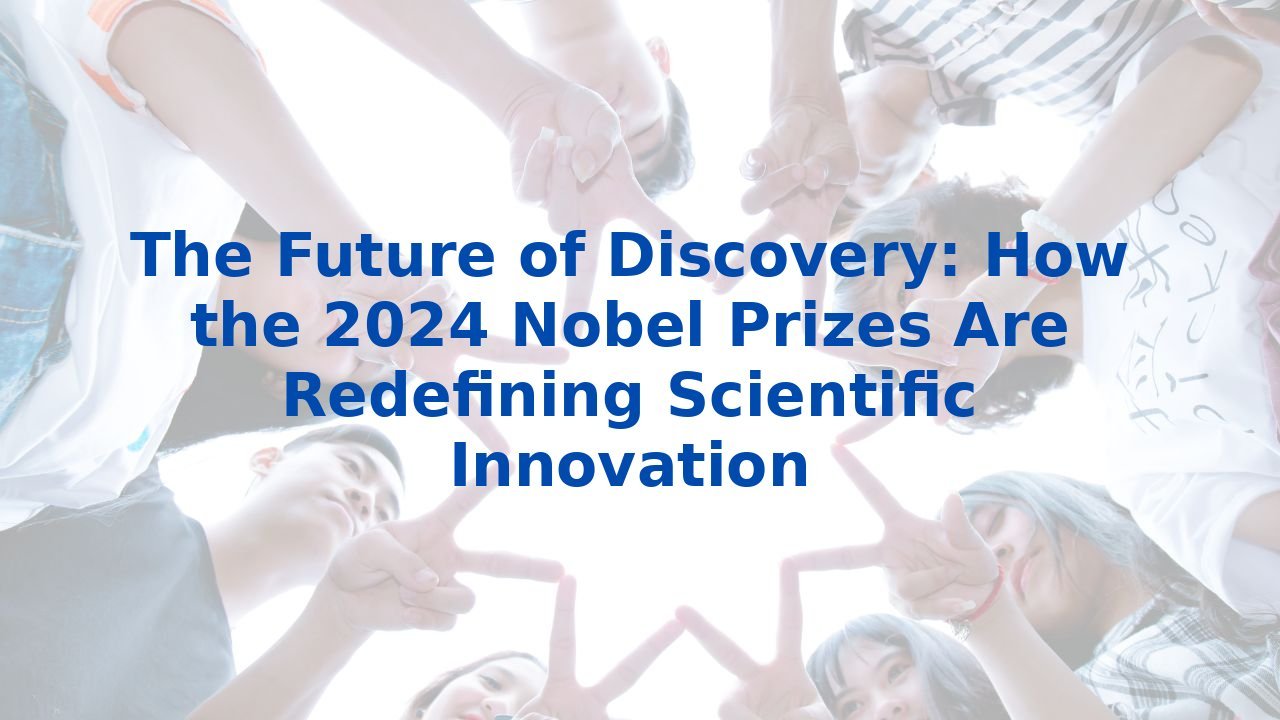The Future of Discovery: How the 2024 Nobel Prizes Are Redefining Scientific Innovation
The Future of Discovery: How the 2024 Nobel Prizes Are Redefining Scientific Innovation
As we venture into 2024, the landscape of scientific innovation is undergoing a transformative shift. This year’s Nobel Prizes are not merely awards; they symbolize a paradigm shift in how we perceive and engage with scientific discovery. The integration of artificial intelligence into research, collaboration, and development processes is redefining the parameters of what’s possible. In this post, we’ll explore how these innovations can enhance business processes and boost organizational efficiency while illuminating the path forward for employee training.
Redefining Innovation through Collaboration
Innovation has always thrived on collaboration, but the modern era introduces a level of connectivity that was previously unimaginable. The Nobel Prizes of 2024 have showcased groundbreaking projects that harness the power of teamwork and diverse expertise. By utilizing AI technologies, research teams can now analyze vast amounts of data more efficiently, identifying patterns and insights that would take humans significantly longer to uncover.
Imagine a team tackling climate change. Through collaborative platforms driven by AI, researchers can synthesize findings from across the globe in real-time, creating solutions faster than ever before. The implications for industries beyond academia are profound—companies can streamline their research and development processes, drastically cutting time to market with innovative products.
Enhancing Decision-Making with AI
Decisions are the backbone of any successful organization. However, the complexity and volume of information available can overwhelm even the most experienced leaders. The 2024 Nobel Prize winners exemplify how AI can simplify this process, providing data-driven insights that empower more informed decision-making.
With predictive analytics, businesses can better forecast trends, manage risks, and allocate resources effectively. The ability to simulate various scenarios allows organizations to experiment with ideas without the associated costs or risks. An environment where decisions are data-informed rather than intuition-driven positions your business ahead of competitors and leads to superior outcomes.
AI and Employee Empowerment
Investing in AI technology is only part of the equation. The true potential lies in equipping your workforce with the necessary skills to leverage these tools effectively. As new innovations surface, providing comprehensive training ensures that your team can fully utilize AI capabilities, fostering a culture of continuous development.
Imagine a scenario where your employees are not only familiar with AI but are adept in its application. This empowers them to find creative solutions to complex challenges, enhancing both individual and collective productivity. Training programs specialized in AI, tailored for various realms like science and research or product development, can be invaluable in maximizing the efficiency of your workforce. Without a doubt, companies that prioritize AI education stand not just to enhance their operations but to breed innovation from within.
Streamlining Processes for Maximum Efficiency
The future of discovery also hinges on how we structure our business processes. With AI, tasks that once consumed valuable time—such as data entry, research, and preliminary analysis—can be automated, freeing up human resources to focus on strategic thinking and creative problem-solving. The goals of enhancing productivity while minimizing costs are no longer aspirational but entirely achievable.
For instance, companies utilizing AI to manage their customer relations can offer a more personalized service. AI can analyze customer behavior, enabling organizations to tailor their offerings in real-time. The feedback loop generated by AI not only creates satisfied customers but also fosters a richer dataset that can inform future business strategies, driving a cycle of continuous improvement.
Conclusion: A Call to Action for the Future
As we reflect on the impact of the 2024 Nobel Prizes, it’s clear that innovation is no longer just the realm of research labs; it’s a fundamental component of every successful organization. The convergence of AI with traditional business processes offers a profound opportunity for transformation. Companies that embrace this change and invest in employee training will not only enhance their efficiency and competitiveness but also position themselves as leaders in their industries.
The journey ahead is filled with promise and potential. It’s not just about adopting new technologies; it’s about embracing a mindset geared toward growth and innovation. Are you ready to redefine your organization’s approach to discovery? The future is here, and it’s time to embark on this exciting voyage.
For organizations ready to take that next step, consider comprehensive training solutions tailored to equip your entire workforce with essential AI skills. Explore more to unlock potential and lead the charge into the future.



